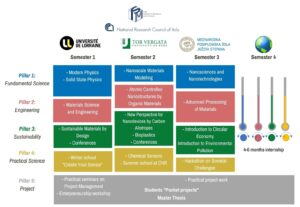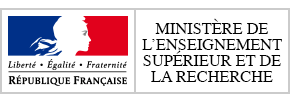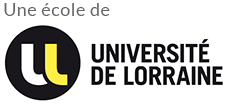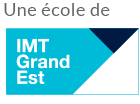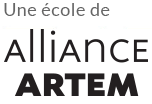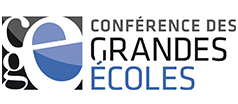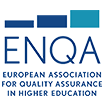A new groundbreaking Erasmus Mundus Joint Master’s program, “GREENANO”, is dedicated to advancing Nanomaterials for Green and Digital Transitions.
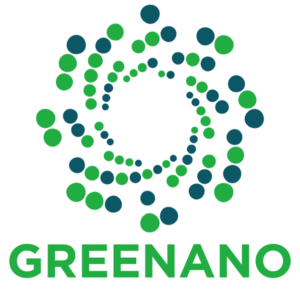 Within a dynamic consortium, the University of Lorraine (Mines Nancy and the Faculty of Science and Technology), joined forces with Tor Vergata University of Rome, CNR Institute of Structure of Matter in Italy, and Jozef Stefan International Postgraduate School in Slovenia to introduce this new cutting-edge program.
Within a dynamic consortium, the University of Lorraine (Mines Nancy and the Faculty of Science and Technology), joined forces with Tor Vergata University of Rome, CNR Institute of Structure of Matter in Italy, and Jozef Stefan International Postgraduate School in Slovenia to introduce this new cutting-edge program.
Alexandre NOMINE, Head of GREENANO Erasmus Mundus Joint Master (EMJM), Associate Professor, Mines Nancy, University of Lorraine
“GREENANO is driven by the European Green Deal vision. Our mission is to prepare a new generation of innovators in nanotechnology for the Green and Digital Transitions. We emphasize sustainability, high-level materials science, and practical skills while maintaining strict environmental standards. In doing so, we aim to actively contribute to the EU’s ambitious 2050 climate neutrality goal.”
Nurturing Future Leaders
The primary goal of “GREENANO” is to foster a new generation of engineers, researchers, and sustainability managers, equipping them to confront the major challenges posed by green and digital transitions. Students will work in close collaboration with top international researchers and industrial partners, gaining invaluable real-world experience.
Aleksander ZIDANŠEK, Professor, Vice Dean for Study Matters, Jožef Stefan International Postgraduate School
“GREENANO offers a unique opportunity to teach master students competencies and skills from the intersection of nanotechnologies and ecotechnologies. It will expand both educational and research cooperation with participating universities, which will create significant added value both to the enrolled students and the research professors.”
A standout feature of the program is its commitment to providing students with a truly interdisciplinary and international educational experience. The curriculum, developed collaboratively by the partners, covers five fundamental pillars: Fundamental Science, Engineering, Sustainability, Practical and Project Work.
During the first semester at the University of Lorraine, students will establish a robust foundation in solid-state physics and materials science with a focus on the sustainability of raw materials. Towards the end of the semester, they will participate in a winter school at the Institute Jean Lamour, providing hands-on experience and real-world applications.
Claudio GOLETTI, Professor, Tor Vergata University of Rome
“GREENANO ambitiously wants to lead the European way for a green technology via a green science approach, for a sustainable technology able to reduce environmental risks and to overcome the declining availability of natural resources. Students will meet this challenging way towards a green technology based at the nanometer level, where atoms and molecules build up the new materials of a green development.”
In the second semester at Tor Vergata University of Rome and CNR Institute of Structure of Matter, the spotlight shifts to nanomaterials, with students immersing themselves in the study of nanostructures, nanodevices and their diverse range of applications. Students will participate in summer school hosted by the CNR Institute of Structure of Matter in collaboration with Elettra Sincrotrone Trieste to explore the sustainability of critical raw materials with carbon-based materials.
Giorgio CONTINI, Professor and Head of the SAMOS Laboratory at the CNR Institute of Structure of Matter, highlights the program’s significance for both CNR and the students.
“The CNR will increase scientific and academic exchanges with the University institutions involved in GREENANO and the students will have the opportunity to come into close contact with the CNR that is primarily dedicated to cutting-edge research and is responsible for the GREENANO Summer School at the end of the second semester.”
The third semester at Jozef Stefan International Postgraduate School intensifies the exploration of nanotechnologies, materials processing, and environmental aspects, emphasizing circular economy principles and sustainability from a broader industrial perspective. It culminates in a hackathon that will prepare students for practical challenges and creative problem-solving.
The fourth semester offers a dynamic experience, as students complete their internships in various locations worldwide, including research institutions, industry partners, and national agencies. This hands-on approach will allow them to apply their acquired knowledge in real-world settings.
This comprehensive approach ensures students gain the skills and knowledge needed to tackle real-world challenges.
Scholarships Await
Outstanding students can seize the opportunity to receive monthly Erasmus Mundus scholarships, covering their expenses throughout the entire program. Additionally, all “GREENANO” students will receive full administrative and organizational support during their studies at the four partner institutions. A complete range of student services will ensure a smooth and enriching educational experience.
Global Recognition
Upon program completion, students will be awarded three national Master’s degrees from the University of Lorraine, Tor Vergata University of Rome, and Jozef Stefan International Postgraduate School. Additionally, they’ll receive a Joint Diploma Supplement, enhancing their global credentials.
Application Open
The application is open on the programme website until 14 February 2024. Stay tuned for updates and detailed information on the
GREENANO: Empowering Tomorrow’s Leaders for Green and Digital Transitions!
